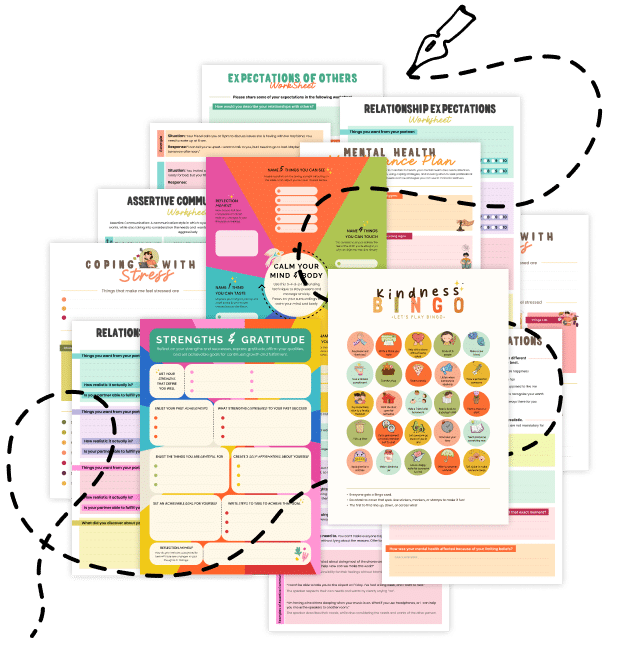20 Things You Should Know About Cognitive Triage
Enhance your mental performance by mastering Cognitive Triage—what it is, why it matters, and how it can help you prioritize tasks and allocate your cognitive resources effectively. Discover how sorting your mental workload can reduce stress, boost productivity, and sharpen your decision-making in an ever-changing environment.
1. What Is Cognitive Triage?
Cognitive Triage is the process of quickly evaluating and prioritizing tasks or information based on their urgency and importance, much like medical triage in emergency situations.
2. A Mental Prioritization Strategy
It involves sorting tasks so that you focus on the most critical issues first, ensuring that your mental energy is directed where it’s needed most.
3. Preventing Cognitive Overload
By actively prioritizing, cognitive triage helps you avoid feeling overwhelmed by too many tasks or pieces of information at once.
4. Allocating Limited Cognitive Resources
Our brains have finite energy; cognitive triage ensures that you deploy your mental resources on tasks that yield the highest returns.
5. Enhancing Decision-Making
When you triage your mental tasks, you make quicker, more informed decisions because you’re not bogged down by less important details.
6. A Tool for Time Management
It integrates well with time management strategies, helping you decide what to tackle immediately and what can wait.
7. Essential in High-Stress Environments
In fast-paced or stressful situations, cognitive triage keeps you focused on urgent priorities, reducing the impact of stress on performance.
8. Improving Focus and Productivity
By filtering out non-essential tasks, cognitive triage helps you maintain a clear focus on what truly matters.
9. Reducing Decision Paralysis
When faced with multiple choices, prioritizing tasks can reduce the paralysis that comes from trying to address everything at once.
10. Enhancing Self-Awareness
It encourages you to become more mindful of your workload and mental state, allowing you to recognize when you’re overloaded.
11. Supporting Goal Achievement
Cognitive triage ensures that your daily actions align with long-term goals by focusing on the most impactful tasks.
12. A Dynamic Process
Your priorities may change over time; cognitive triage is a continuous process that adapts as new challenges and opportunities arise.
13. Streamlining Workflow
It simplifies your workflow by breaking down complex projects into manageable components, allowing for step-by-step progress.
14. Integrating with Digital Tools
Many productivity apps are designed to help you triage tasks, making it easier to organize and schedule your work efficiently.
15. Managing Interruptions
By having a clear list of priorities, you can more easily handle unexpected interruptions without derailing your progress.
16. Reducing Mental Fatigue
Focusing on high-priority tasks helps reduce the cognitive load, conserving mental energy for more demanding challenges.
17. Improving Learning and Retention
When you focus on key tasks, your brain can process and store information more effectively, boosting long-term retention.
18. Adaptive and Flexible
Cognitive triage is not a one-time action—it evolves with your workload, helping you adapt to new situations quickly.
19. Enhancing Overall Mental Efficiency
By regularly practicing cognitive triage, you train your brain to work smarter, increasing both efficiency and performance.
20. Related Topics to Explore
- Cognitive Load Theory – Understand how managing mental workload can optimize your performance.
- Task Switching Costs – Learn how shifting between tasks affects your cognitive efficiency.
- Default Mode Network – Explore the brain network that activates during rest and its role in mental processing.
- Adaptive Confidence – Discover how flexible goal-setting and prioritization can boost your self-assurance.
- Mind-Wandering Mode – Investigate how unstructured thought periods interact with focused attention.
Quick Tips to Boost Your Cognitive Triage
- Prioritize Your Tasks: Start each day by listing your tasks and ranking them by urgency and importance.
- Break Down Projects: Divide complex projects into smaller, manageable steps to streamline your workload.
- Use Digital Tools: Leverage productivity apps that help you organize and triage your tasks effectively.
- Schedule Regular Reviews: Set aside time to reassess your priorities as new tasks and challenges emerge.
- Practice Mindfulness: Engage in mindfulness exercises to enhance self-awareness and reduce cognitive overload.
Embrace these insights and quick tips to harness the power of Cognitive Triage, empowering you to navigate your workload with clarity and precision for peak mental performance!


